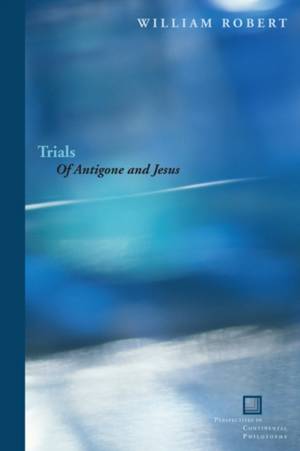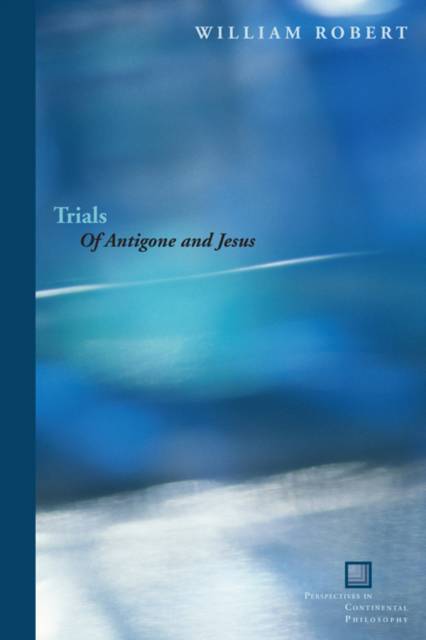
- Retrait gratuit dans votre magasin Club
- 7.000.000 titres dans notre catalogue
- Payer en toute sécurité
- Toujours un magasin près de chez vous
- Retrait gratuit dans votre magasin Club
- 7.000.0000 titres dans notre catalogue
- Payer en toute sécurité
- Toujours un magasin près de chez vous
Description
What does it mean to be called "human"? How does this nomination affect or effect what it means to be called "divine"? This book responds to these related questions in intertwined explorations of the passionate trials-examinations, tests, and ordeals-of Antigone and Jesus. Impelled by her love of the impossible, Antigone crosses uncrossable boundaries, transgresses norms of kinship and mortality, confounds distinctions of nature and culture, and, in the process, unearths and critiques the sexism implicit in humanism. Antigone thus disrupts humanist traditions stretching from Sophocles to Martin Heidegger-traditions that would render her subhuman or inhuman. She survives these exclusions and engenders a new mode of humanity, one that destabilizes classic oppositions of life and death and affirms mortal finitude in the face of the future's unforeseeability. This new mode of humanity offers a new way of considering Jesus, whom Christianity identifies as human and divine. Building on his reading of Antigone, the author, through a close reading of Mark's gospel focused on Jesus' cry of abandonment from the cross, shows that to refigure humanity is also to refigure divinity and their relation. In the first extended treatment of Jean-Luc Nancy's Corpus in English, the author draws on the theoretical insights of Jacques Derrida and Nancy to propose an innovative account of Jesus' humanity and divinity-one that can contribute to religious understandings of embodiment and prayer and can open avenues of inquiry into tragedy, sexual difference, posthumanism, and politics. By pairing Antigone and Jesus and engaging the work of Judith Butler, Simone Weil, Jean-Louis Chrétien, and Dominique Janicaud, this book constructively participates in interdisciplinary conversations at the nexus of religious, philosophical, literary, and gender studies.
Spécifications
Parties prenantes
- Auteur(s) :
- Editeur:
Contenu
- Nombre de pages :
- 136
- Langue:
- Anglais
- Collection :
Caractéristiques
- EAN:
- 9780823231652
- Date de parution :
- 07-05-10
- Format:
- Livre relié
- Format numérique:
- Genaaid
- Dimensions :
- 155 mm x 229 mm
- Poids :
- 362 g

Les avis
Nous publions uniquement les avis qui respectent les conditions requises. Consultez nos conditions pour les avis.






